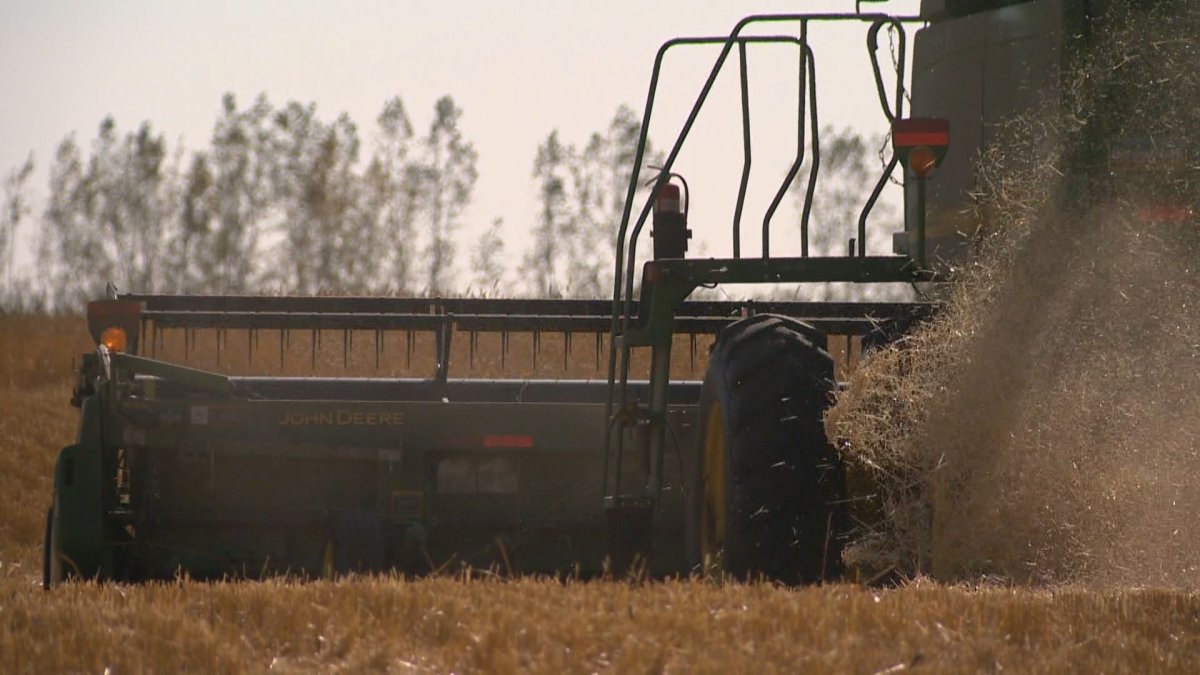Warm weather in the past week has helped crops mature Saskatchewan Agriculture reported Thursday, as harvest operations advance in some parts of the province.

Fifty-two per cent of fall rye, 19 per cent of winter wheat, six per cent of field peas and three per cent of lentils are now in the bin, according to the weekly crop report.
However, there are reports of premature ripening and damage from the high heat.
Overall, Sask Ag said one per cent of the crop is combined and two per cent is swathed or ready to straight-cut. The five-year average for this time of year is two per cent combined and three per cent swathed or ready to straight-cut.
The report said the harvest is most advanced in the south and west-central regions, where two per cent of the crop in the southwest is combined and one per cent of the crop in the southeast and west-central is combined.
Producers in the central and northern regions have less than one per cent of the crop combined, but many expect to start in the coming weeks, Sask Ag said.
Small amounts of rain were reported in most parts of the growing regions, with northern, west-central and southeast regions receiving between a half-inch and an inch of rain.
The report said more rain is needed to help crops during the seed-filling stage.
- Canadian man dies during Texas Ironman event. His widow wants answers as to why
- On the ‘frontline’: Toronto-area residents hiring security firms to fight auto theft
- Honda’s $15B Ontario EV plant marks ‘historic day,’ Trudeau says
- Canadians more likely to eat food past best-before date. What are the risks?
Despite the rain, Sask Ag said moisture conditions have deteriorated slightly.
Cropland topsoil moisture is rated 51 per cent adequate, 37 per cent short and 12 per cent very short.
Hay and pasture land topsoil moisture is rated 38 per cent adequate, 41 per cent short and 21 per cent very short.
Sask Ag said many producers are reporting hay yields are below average this year.
Estimated average dryland hay yields are 1.2 tons per acre for alfalfa, 1.1 tons per acre for alfalfa/bromegrass, 1.0 tons per acre for other tame hay, 1.0 tons per acre for wild hay and 1.8 tons per acre for greenfeed.
Estimated average irrigated hay yields are 3.0 tons per acre for alfalfa, 2.7 tons per acre for alfalfa/bromegrass and 2.8 tons per acre for greenfeed.
The majority of crop damage this week was due to wind, dry conditions, heat, wildlife and grasshoppers, along with isolated reports of hail.



Comments